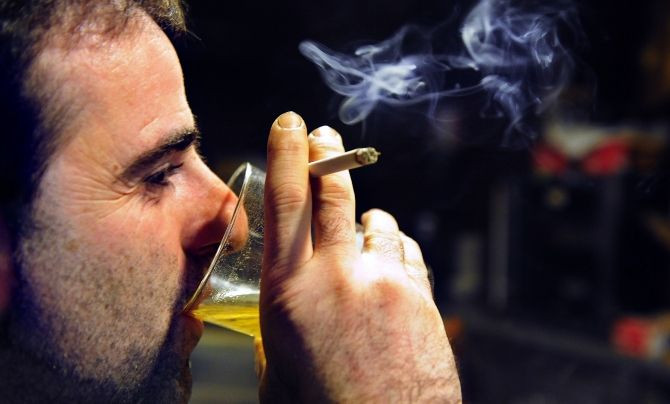Smoking, Drinking Increase Pancreatic Cancer Risk

Smoking and drinking increase the chance of people being diagnosed with pancreatic cancer at an early age when compared to people who don't drink or smoke, says a new study.
Smoking is already known as a risk factor for pancreatic cancer. Apart from smoking, other risks of developing pancreatic cancers include hereditary disorders, diabetes and chronic pancreatitis.
Previous animal studies have shown that a diet high in fat and calories raises the risk of pancreatic cancer. Pancreatic cancer is difficult to detect early as the person may have very vague symptoms until the final stages. Also, the pancreas is hidden behind other organs which makes it difficult for doctors to find the tumor easily.
"As screening programs are developed, an understanding of how personal features influence the age of presentation will be important to optimize the timing of those screenings," said lead author Michelle Anderson, MD, from the University of Michigan Health System.
The present study included approximately 811 pancreatic cancer patients. The researchers found that people who smoked a pack of cigarettes every day had a risk of cancer diagnosis at the age of 61, 11 years earlier than the average age of pancreatic cancer diagnosis. For those who had three drinks per day had the risk of cancer diagnosis at the age of 62.
The study also found that people who drank only beer had higher risk of pancreatic cancer diagnosis than people who had other types of drinks. The study shows an association between risk factors and cancer diagnosis and not a cause.
The researchers say that people who quit smoking and drinking had reduced the risk of early cancer diagnosis. According to the study, after 10 years, former smokers and drinkers had no extra risk of cancer diagnosis. Other studies have shown that a diet rich with antioxidants like vitamin C, vitamin E and selenium can cut pancreatic cancer risk.
The study was published in the American Journal of Gastroenterology.
Published by Medicaldaily.com



























